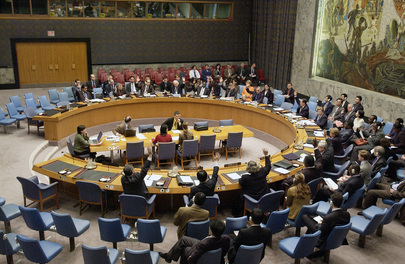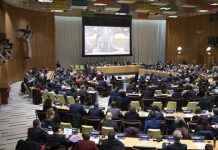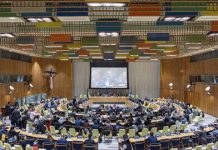The head of the UNFCCC on Tuesday called for finance to “flow right now”, as delegates prepare to head for the Brazilian city of Belém next month for what is being seen as a crunch summit for turning promises into action.
Whether or not countries need to be prepared to cope with a changing, more unpredictable climate is hardly in question: extreme weather events such as devastating wildfires, catastrophic droughts and apocalyptic floods are making life increasingly difficult in all parts of the world (or even, as the inhabitants of sinking Pacific island States are finding, impossible).
There are plenty of examples of effective measures that countries can take to adapt to this new normal, ranging from high sea walls to cyclone warning systems, floating homes and planting drought-tolerant crops.
However, it all costs money. A lot of money. Estimates from the UN Environment Programme (UNEP) put the figure at somewhere between $160 and $340 billion – but just a tiny fraction of that amount is actually getting to developing countries.
Climate-related disasters like floods, as pictured in Madagascar, can lead to a range of health problems.
Livelihoods destroyed
On Tuesday, UN Climate Change released a new report detailing the progress countries are making on their national climate adaptation plans (NAPs). It confirms that the persistent funding gap risks scuppering plans that many are attempting to implement.
Speaking at the launch in the Brazilian capital, Brasilia, Simon Stiell reminded that the climate crisis is destroying lives and livelihoods in every region of the world, especially in the most vulnerable countries, and that “adaptation is not optional; it is absolutely essential.”
The UN climate chief said adaptation would not only protect lives but also help empower communities and countries to thrive.
National Adaptation Plans, he declared, are “key to unleashing the epic transformative power of investing in climate resilience.”
Children in Timor-Leste Residents of Orlalan village, in Timor-Leste, take part in a climate disaster drill.
Plans up and running
Aside from the funding challenge, progress is being made: 67 developing countries have submitted plans – including 23 from least developed countries and 14 small island developing States – with an approach aimed at engaging more women, young people, Indigenous Peoples, local communities and the private sector.
These efforts explain in detail what the priorities and needs are – and should, Mr. Stiell suggested, make it more straightforward for investors and financial institutions to fund climate adaptation.
The report comes 19 days before the opening of the COP30 UN climate conference in the Amazonian city of Belém, where adaptation and the funding gap will be a central issue for negotiators, with the aim of mobilising 1.3 trillion dollars in climate finance.
Looking ahead to the UN summit, Mr. Stiell said it was a “key test of global solidarity,” that must “connect climate action to real lives everywhere, to spread the vast benefits.”
Source of original article: United Nations (news.un.org). Photo credit: UN. The content of this article does not necessarily reflect the views or opinion of Global Diaspora News (www.globaldiasporanews.com).
To submit your press release: (https://www.globaldiasporanews.com/pr).
To advertise on Global Diaspora News: (www.globaldiasporanews.com/ads).
Sign up to Global Diaspora News newsletter (https://www.globaldiasporanews.com/newsletter/) to start receiving updates and opportunities directly in your email inbox for free.




























